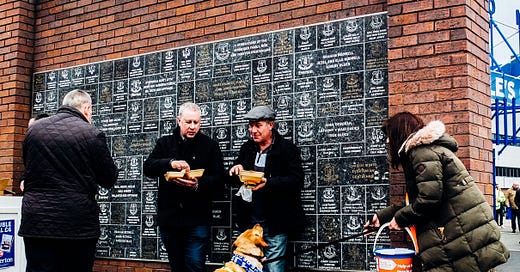Kindness and Hope Amidst Austerity: SJ Bradley's Author Journey
Bradley's experiences working in a specialist school during the UK's austerity era. Heartwarming tales of resilience, including students' unwavering joy for "Gangnam Style"
Dear Scribblers,
If the sunny weather (haha…) has you inspired to get writing this Summer, we’ve launched two short story workshops, to get you writing ghoulish stories. Choose from our August or September date, with a ‘Modern Gothic’ anthology tutor. Expect more time to analyse the gothic genre and structure with journalist Michael Bird, and more time to experiment with your writing, with teacher Lauren Archer. One more early bird available for each 2 hour workshop. Tickets here!


Now we love a surprise review, and two gorgeous journals popped up this week with their thoughts on craft book ‘The Process of Poetry’, Edited by Rosanna McGlone!


Today I’m spotlighting a very special short story collection, by a writer who has long given back to her community via tutoring and developing writers: SJ Bradley and Maps of Imaginary Towns (27 September 2024).
As we approach the UK general election, and we strive for change, today we look back at the period of austerity under Cameron and Johnson, and what this has meant for the most vulnerable in our society…
With empathy and lyrical prose, Bradley transports readers into psychologically rich neighbourhoods where reinvention flickers amid life's constricting boundaries. Gritty yet tender, Maps of Imaginary Towns interrogates grief, ambition, belonging, and traces the hard-won solace of small acts of courage.
SJ Bradley:
“I’d been working in a special school for a couple of years when the Conservative government came in. Special schools can be a fun place to work. In ours, one of the biggest schools in Bradford, no festival went uncelebrated. The Chinese New Year, Eid, Easter, Christmas, Diwali: we marked every single one. We were always baking something or making something or dressing up in costumes, and our fingers and our clothes and our hair were constantly covered in glitter.
The school had a lot of students with multiple severe and profound learning disabilities, most of them with complex medical needs. The school was brilliant at including these students and making sure they could access everything that was on offer. They had the choice to go to any of the lunchtime clubs – the board games club, the chill-out club, or the lunchtime disco, which was presided over by an ABBA-loving emcee going by the name “DJ Fantastic.”
In any given week, you’d see dozens of people with lanyards and different coloured polo shirts or tabards: the school bus drivers in their hi-vis jackets, who worked for the council; the physios and speech and language therapists, in dark and pale blue, who worked for the NHS; the specialist workers who came to assess students’ sight and hearing, the wheelchair services workers, who were all from the NHS or education services; and the music therapist, with her bag of instruments and trolley, who came to give the students the chance to express themselves and interact with their friends, who was a freelancer paid from the school’s own budget.
When Cameron and Osborne came into Number 10, with their self-satisfied ham-faces glowing in the sun, I thought: “Oh, shit.”
Keep reading with a 7-day free trial
Subscribe to A Publisher with a Conscience: Fly on the Wall Press to keep reading this post and get 7 days of free access to the full post archives.




